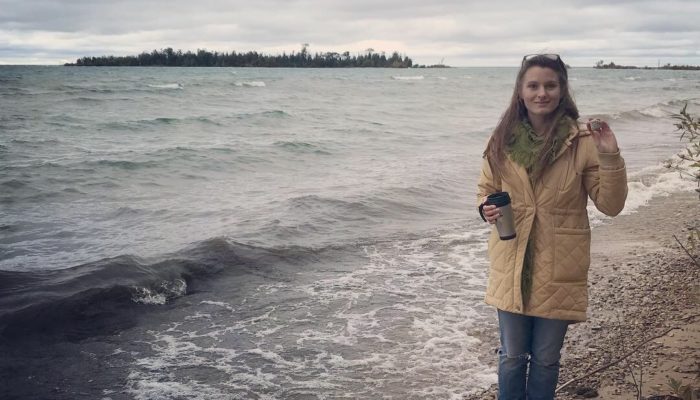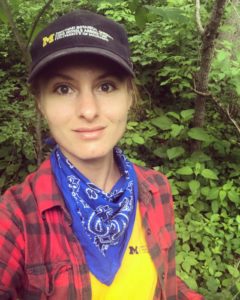
In the second semester of my sophomore year, I took Intro to Ecology. At the time, I had no idea what ecology was. Something to do with nature, I had (correctly) assumed. Since I loved the outdoors and wildlife, I thought it would be a fun class while satisfying the science requirement I had to fulfill, even as a language major.
On the first day, we learned the definition of ecology: The study of relationships between organisms, themselves, and their environment. For whatever reason, that definition resonated in my mind for weeks afterward. I repeated it to my mom when I went home to visit her. “Isn’t that cool, Mom? Isn’t that cool?!” I had known people could study individual organisms, but to think that people could also study the connections, seen and unseen, that influence individuals, populations, communities, and ecosystems was incredible! It was a step into a world I didn’t know I had been craving. In just a few weeks, I ditched my language major and hooked up with Program in the Environment, declaring a specialization in terrestrial plant conservation.
Although I had always been fascinated by science, math, my mortal enemy, had discouraged me from pursuing it as a study. Science was for people who were “good” at math, not me. Ecology changed that. For the first time, I understood how numbers could have meaning and how math could unlock secrets about our Earth. I still struggled, crying more tears of frustration than I care to admit, but I loved ecology enough to power through.
Two and a half years later, I graduated with a bachelor of science. I took a conservation internship at Matthaei Botanical Gardens and Nichols Arboretum that summer, but followed that by pursuing my other love, growing food, by becoming a FoodCorps AmeriCorps service member. I love FoodCorps, but it has a two-year term limit, leaving me to ask myself “What comes after?”
The National Wildlife Federation’s Women in Conservation Leadership Summit is the perfect opportunity for me to discover the different paths I can take after my FoodCorps service ends. Since the summit allows attendees to define conservation for themselves, such as defining it through land-based work, policy, research, art, or nonprofit management, I will have the opportunity to interact with women of diverse backgrounds and learn of the endless ways I can serve our planet. There will be women who are in their early careers, like me, and I hope to find kinship in shared feelings of excitement and uncertainty about our futures. There will also be women who are further along in their careers, and I look forward to seeking their advice and learning from their experiences. Connecting with these women will be invaluable to me in figuring out what comes next. I know I will leave the summit with increased knowledge, resources, and confidence in that, no matter what my future holds, I will strive to help our planet in some way.
 About the Author
About the Author
Casey Haggerty is a Program in the Environment graduate from the University of Michigan and currently serves as a FoodCorps AmeriCorps service member in Northwestern Michigan. She loves learning about agricultural practices that work with, rather than against, the natural world.
